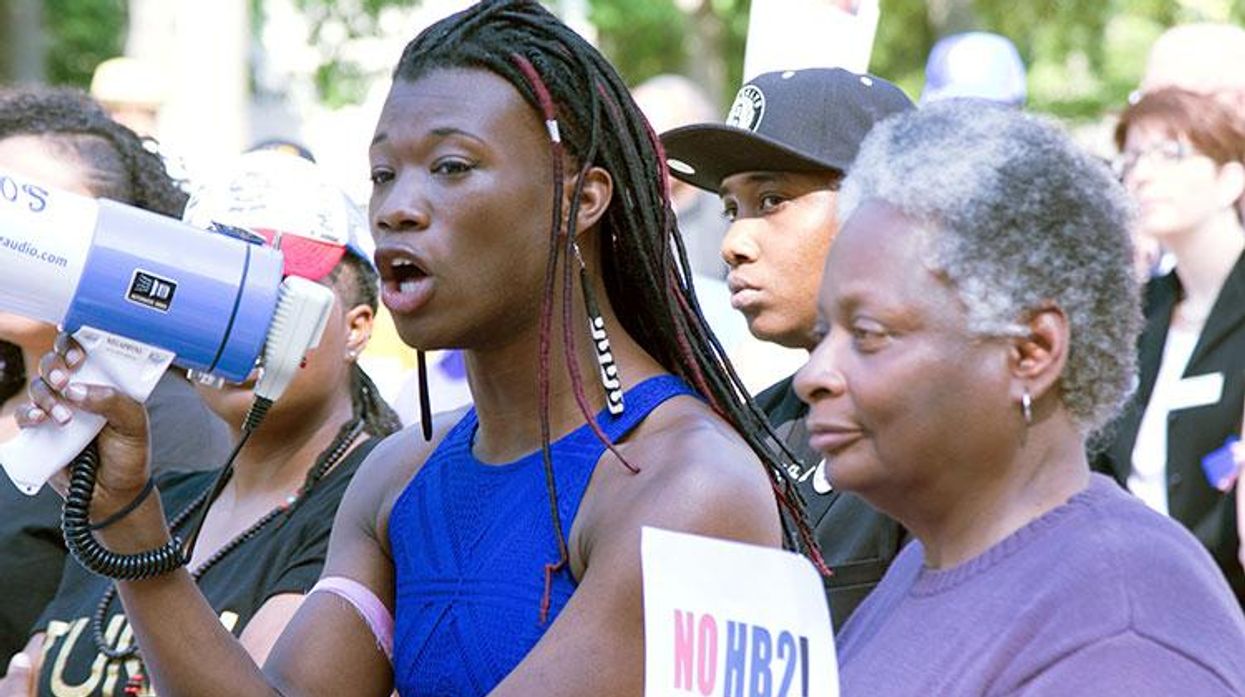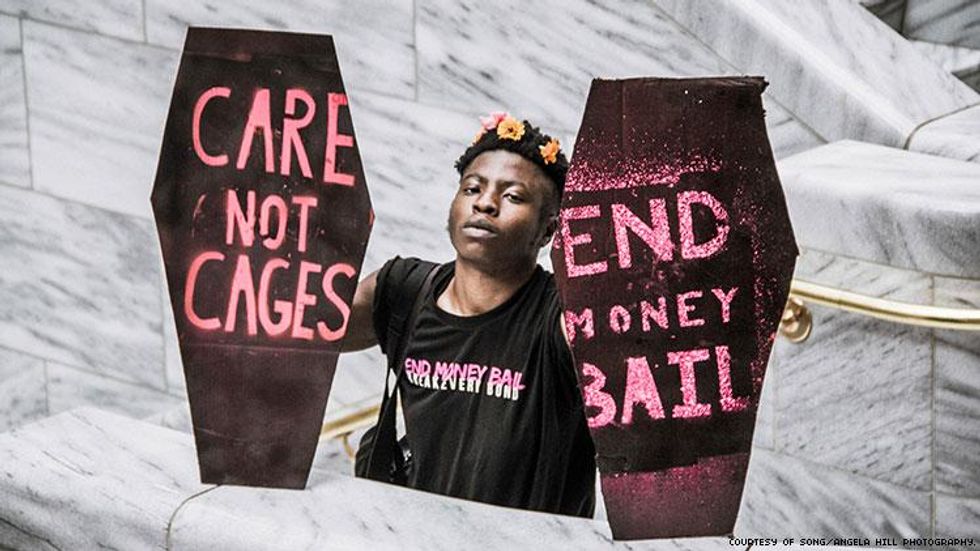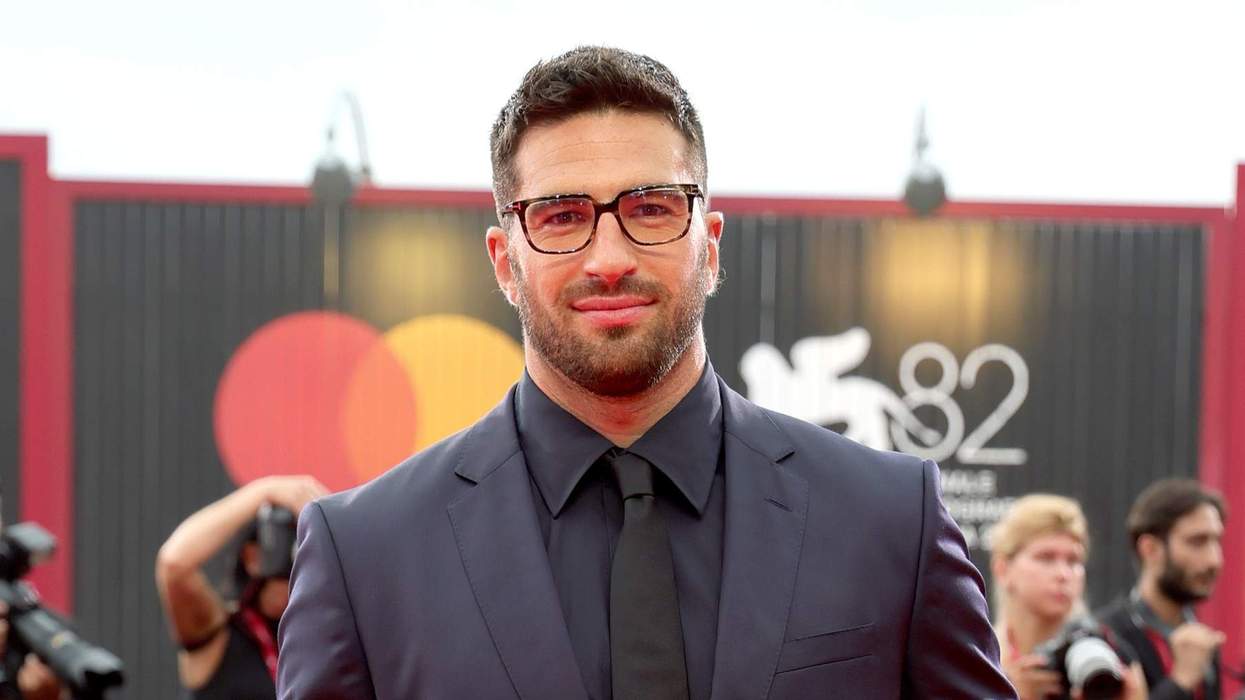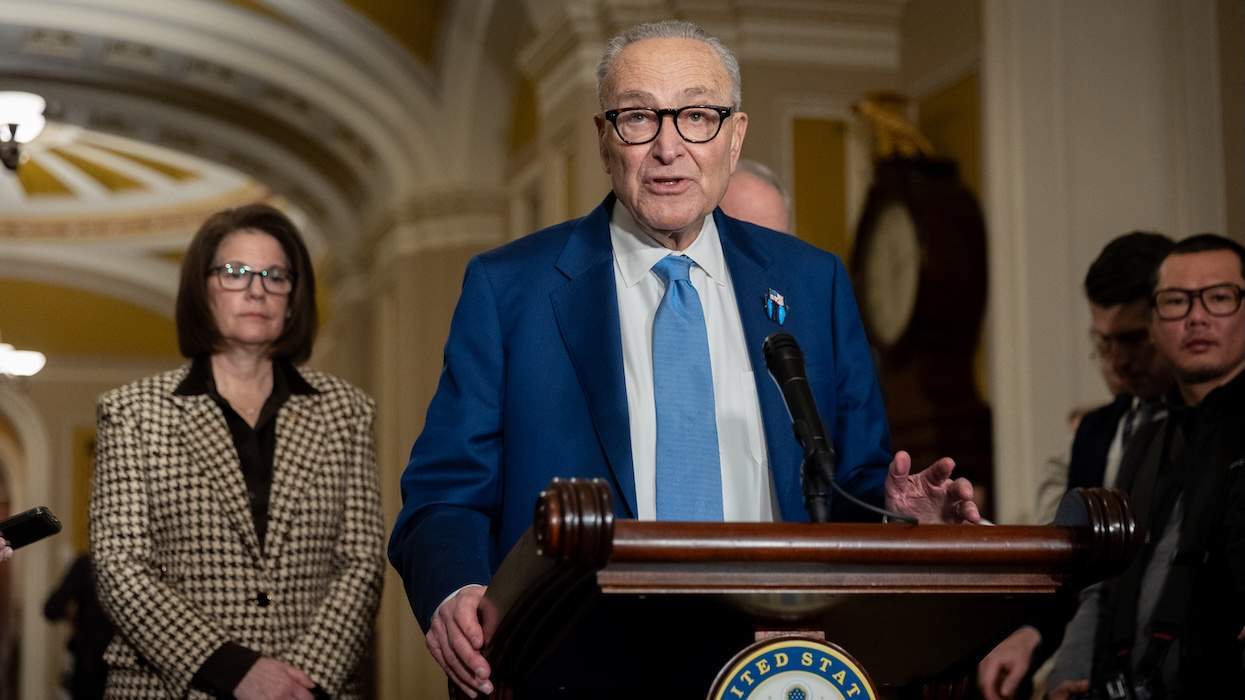On a sweltering Atlanta summer day in July 2016, Southerners on New Ground (SONG) co-director Mary Hooks led her fellow community organizers -- each clad in black T-shirts emblazoned with the names of the various organizations, including Black Lives Matter Atlanta, the Racial Justice Action Center, Rise Up, and the Georgia Not1More Coalition -- as they engaged in an irrepressibly abolitionist call-and-response aimed at a line of local police officers. The chant, developed in the height of the Movement for Black Lives and defiantly named "The Mandate," demands a widespread divestment from prisons, courts, and jails.
"The vision of justice for us does not include cages. The vision of justice for us allows us to walk in our communities with safety and dignity for all Black people: those who are differently abled, Black women, Black children, queer bodies, trans women," Hooks exclaimed in a video filmed during the display of civil disobedience. "All of our brilliance deserves that. That is public safety. So, whoever is defining it, come talk to us, because we have a different vision. Get behind it or get beside us and the organizations, and the communities, and the people we represent."
Unlike many organizations in racial, gender, and LGBTQ+ justice, SONG has strived to straddle various movements in an intersectional manner since its advent in 1993. SONG was borne out of the National LGBTQ Task Force's annual conference, Creating Change, which was held in Durham, North Carolina. In an unprecedented but intentional effort, three Black lesbians (Pat Hussain, Joan Garner, Mandy Carter) and three white lesbians (Suzanne Pharr, Pam McMichael, and Mab Segrest ) gathered in a workshop to discuss how to better support each others' organizing endeavors. "None of us came there planning to start an organization. In fact, we came from different work," Hussain says of her career prior to the conference. "We all came with years of organizing under our belts in
various ways."
Having come of age during the era of the Civil Rights Movement, the second Feminist Wave, and early Gay Liberation Movement, the SONG founders were inspired by some of the most pivotal moments in American organizing and activism. "It was heartbreaking to watch the Freedom Rides, the [Montgomery] Bus Boycotts, the marches, and everything," Hussain recalls. While seeing the ways the marginalized masses were galvanized in their early years, they lamented the chasms between those movements. Queer leaders had been sidelined, and even aggressively forced out of both the CRM and feminist discourse (which ignored the realities of non-white, non-straight women), while gay liberation had focused squarely on cisgender gay white men.
In subsequent meetings over the next year, the six queer women continued piecing together a plan to move more intersectional work than ever before, compiling all of the experiences (and credentials) they'd garnered individually within social justice. Pharr, McMichael, and Segrest had all been involved in anti-racism activist work -- in the vein of white Southern organizer Anne Braden who created the multiracial Southern Organizing Committee for Economic and Social Justice. And Garner, Carter, and Hussain worked within different spaces -- anti-war mobilizations, LGBTQ+ efforts, and philanthropy -- always bringing their Blackness and lesbian identities to the fore. In discussing their visions for SONG, Hussain and McMichael were named the first co-directors.
LGBTQ+ people across the South began to hear about the organization via word-of-mouth and mailers. Those early years were quintessentially grassroots -- they launched several different events, including potlucks to target the isolation that queer people of color experienced in the South, holistic healing spaces for local community members to network and engage in skill-sharing, and a partnership with PFLAG on creating safe spaces. Throughout its life, SONG has deepened its commitment to radical work in response to major events like Hurricane Katrina, where members supported rural communities in navigating the trauma associated with surviving the natural disaster.
After a steady flow of new leaders through the first decade of the 2000s, SONG refined its approach around three goals: political education, collective leadership, and grassroots direct-action organizing. With the latter, the organization came to be known for its more vocal, political work that resists how violence is enacted by the criminal justice system. In October 2014, just months after the shooting death of Michael Brown in Ferguson, Mo., SONG members helped plan a national week of resistance against police brutality and mass incarceration. The focal point was an action where protestors interlocked arms and shut down the I-75/85 highway in Atlanta.
Though SONG has historically had a limited focus on transgender issues specifically, the emergence of bold organizers like Micky Bradford and Kayla Gore have begun to transform the organization through a partnership with Transgender Law Center. In spring 2016, SONG made headlines while organizing against North Carolina's HB2 fiasco, in which former North Carolina Gov. Pat McCrory signed The Public Facilities Privacy & Security Act, requiring trans and gender nonconforming people to use the restroom that corresponds to their sex assigned at birth. Following a major protest in front of the governor's mansion, a video of Bradford voguing in front of a line of police officers went viral -- a profound display of cultural civic disobedience.
"I heard the section of Black and Asian and Pacific Islander drummers. They were just going to town on the beat. I thought, 'This beat is so sick. I just want to vogue down. I'm so tired,' Bradford says. "That was also a moment when folks nationally saw that HB2 wasn't just about bathroom access. It was broadly about access to public spaces, it was about policing public spaces."
SONG has continued its expansive commitments to various marginalized groups in the wake of the 2016 election of Donald Trump, with much of its work centering people who have been detained or incarcerated. The organization has partnered with groups like the Not1More campaign and Mijente to raise the solution of sanctuary cities in the national conversation, and lift up instances of injustice like the tragic death of Roxsana Hernandez, a trans Latina who died in ICE custody in May 2018.
The National Black Mama's Day Bail Out became central to SONG's programming roster in 2017. The annual campaign (spearheaded by the National Bail Out collective of which SONG is a central component) elevates the inhumanity of money bail while advocating for free incarcerated mothers so they can spend time with their loved ones on Mother's Day. That first year, organizers raised nearly $1 million and freed 188 people, and the goal is to continuously increase that number in coming years.
With nearly 4,000 members, 300 member-leaders, and 11,000 supporters, Hooks believes that SONG's work will endure for many more eras. She believes organizers and advocates in other parts of the United States should place more attention on the work happening from Durham to Atlanta and beyond. "The South has a unique history and a promising future. A lot of its ability to be transformed is in how people organize in it, how they understand the position of Black, white, brown, indigenous, and other people in relationship to each other. In transforming the South, so goes the nation and so goes the world."
This article appears in Out's June/July 2019 issue celebrating Stonewall 50. The three covers feature the complicated candidacy of presidential candidate Pete Buttigieg, the enduring legacy of activist Sylvia Rivera, and the triumphant star power of actress Mj Rodriguez. To read more, grab your own copy of the issue on Kindle, Nook, Zinio or (newly) Apple News+ today. Preview more of the issue here and click here to subscribe.






























